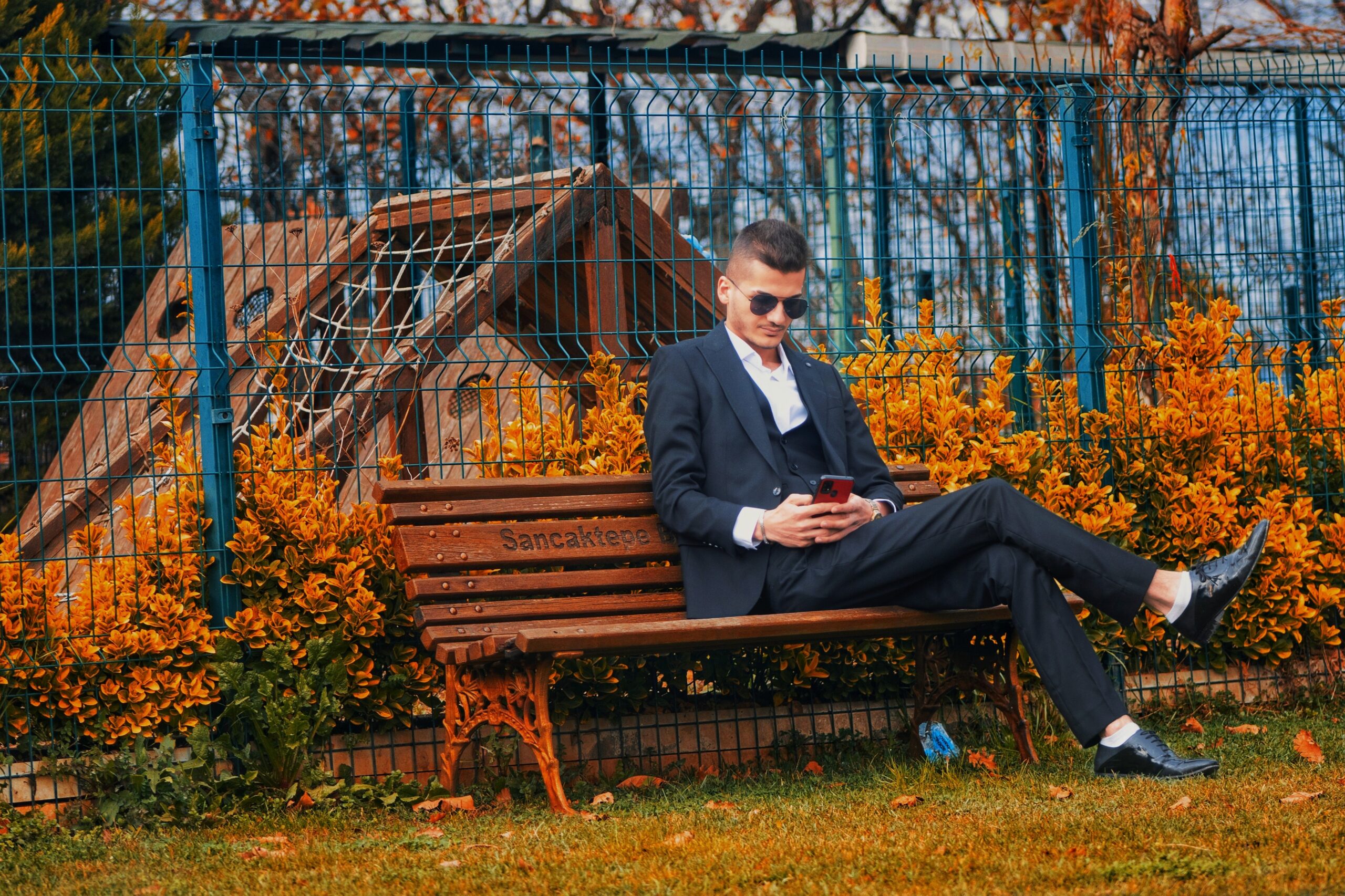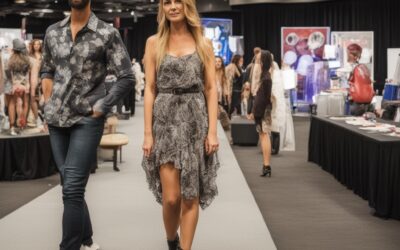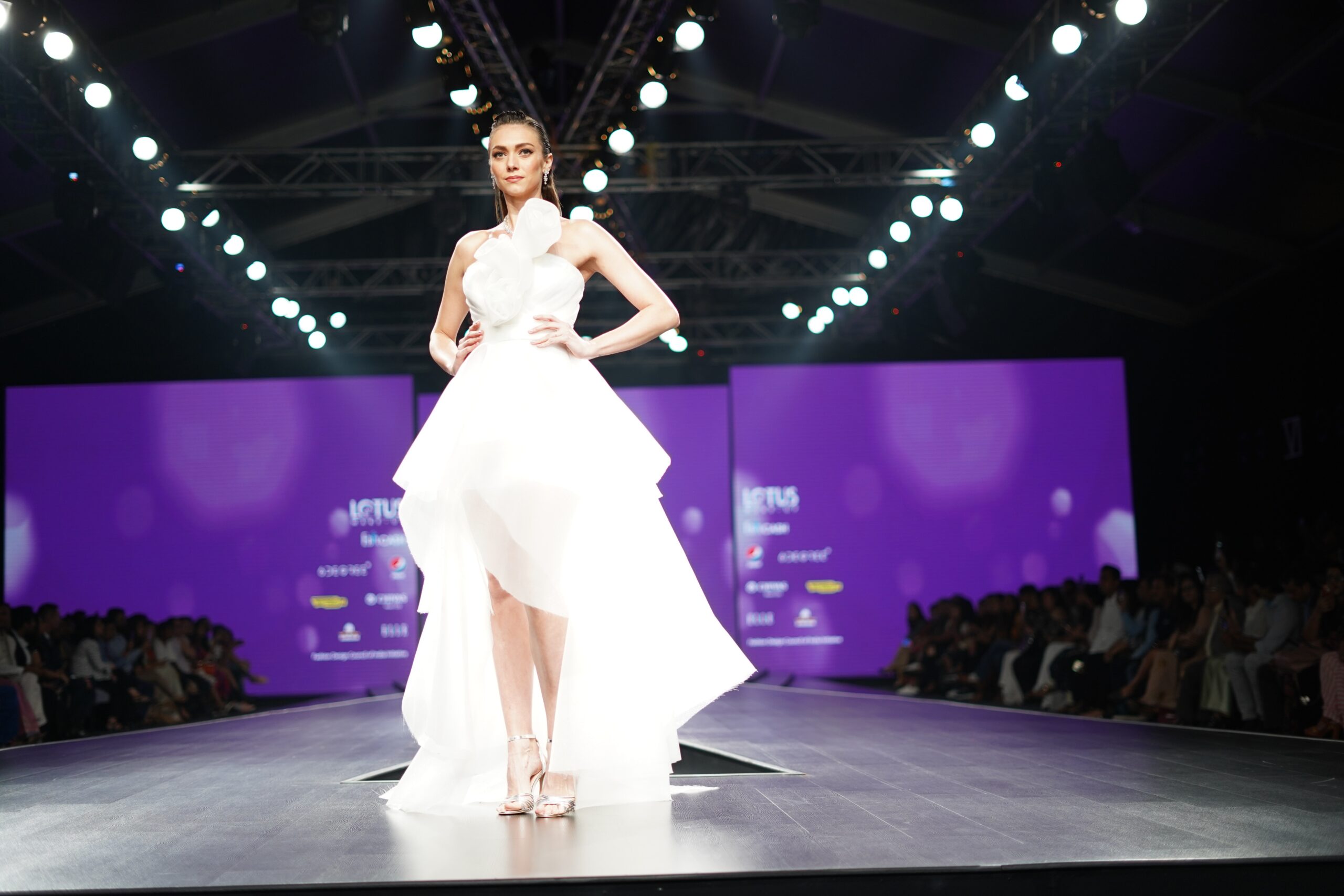Welcome to an exhilarating exploration of the illustrious Istanbul Fashion Week. For those of you who are not yet aware of this awe-inspiring event, let’s paint a vivid picture. Every year, the heart of Turkey turns into a grand spectacle of creativity and innovation, with designers and fashion enthusiasts from all corners of the world gathering to witness and partake in this extravagant affair. Istanbul Fashion Week is a feast for the eyes and a playground for the imagination, where ordinary ideas transform into extraordinary pieces of art.
Despite being less renowned than the “Big Four” – New York, London, Milan, and Paris, Istanbul Fashion Week has carved out a unique niche for itself, gracefully blending traditional aesthetics with contemporary trends, and painting a rich tableau of Turkish culture and global influences. This fashion week is far more than just a display of clothing; it’s a vibrant tapestry of societal transformation and artistic defiance against clichéd stereotypes. Join us as we dive into an in-depth exploration of ten ways Istanbul Fashion Week breaks down the barriers and redefines the rules of style.
A Crucible of East Meets West
Istanbul Fashion Week is where the East meets the West, a beautiful concoction of cultural exchange and artistic collaboration. Unlike the rigid demarcations of style often found in traditional fashion weeks, Istanbul Fashion Week is an arena where creative minds play with aesthetics that go beyond regional boundaries.
For instance, designers frequently blend the traditional ‘kaftan’, a symbol of Ottoman sartorial elegance, with Western influences, creating a fusion style that redefines the norms. The bold intermixing of elements demonstrates the organic evolution of fashion, breaking the stereotype that Eastern and Western aesthetics can’t seamlessly coexist. This acts as a catalyst for other designers worldwide, encouraging them to embrace a more inclusive and diverse fashion philosophy.
Such a blend of styles also fosters a sense of global unity and tolerance, making fashion a powerful platform for socio-cultural dialogue. Visitors and participants of Istanbul Fashion Week experience this unity firsthand, contributing to a broader perspective that transcends the confines of the runway.
Furthermore, this synergy of East and West helps local Turkish designers get global exposure, allowing their work to reach audiences that otherwise might be inaccessible. Simultaneously, international designers get an opportunity to immerse themselves in Turkish culture and aesthetics, influencing their work and broadening their design vocabulary.
In conclusion, Istanbul Fashion Week’s harmonious blend of Eastern and Western styles helps break the stereotype of compartmentalized fashion, and in doing so, it fosters a sense of unity, global exposure, and cultural exchange.
From the Hands of Artisans to the Global Stage
A striking feature of Istanbul Fashion Week is its conscious effort to bring artisanal craftsmanship to the global fashion stage. Turkish artisans, known for their meticulous craftsmanship and centuries-old techniques, have often been confined to local markets. However, Istanbul Fashion Week presents an opportunity for these artisans to shine, pushing back against the stereotype that haute couture and traditional craftsmanship can’t coexist.
Designers at Istanbul Fashion Week collaborate with local artisans, showcasing designs that boast intricate embroidery, detailed beadwork, and other traditional Turkish art forms. Not only do these designs add a unique, authentic flavor to the runway, but they also provide global visibility to these skilled craftsmen, propelling their work onto an international platform.
The inclusion of artisanal craftsmanship in high-fashion design also challenges the narrative of fast fashion. It reminds us of the value of slow, painstaking artistry, urging consumers to recognize and appreciate the efforts behind each garment. This breaks away from the stereotype of fast, disposable fashion, promoting sustainable consumption practices instead.
Besides, this approach benefits the local economy by empowering artisans and creating a sustainable demand for their skills. It also preserves and promotes Turkey’s rich cultural heritage, as traditional art forms find new life and relevance in contemporary fashion.
Therefore, Istanbul Fashion Week’s celebration of artisanal craftsmanship breaks stereotypes on multiple fronts, supporting local artisans, preserving cultural heritage, and promoting sustainability.
Embracing Diversity and Inclusion
Diversity and inclusion are cornerstones of Istanbul Fashion Week. Unlike many fashion weeks that are criticized for lack of diversity, Istanbul Fashion Week embraces an all-encompassing approach. By including models of various ethnicities, sizes, and ages, it pushes back against the stereotype of the ‘ideal’ model and promotes a more realistic representation of society on the runway.
Models walking the Istanbul Fashion Week runway range from the traditionally slim to plus-size, from teenagers to individuals in their golden years, and from a myriad of ethnic backgrounds. This diversity reflects the real world, encouraging body positivity and acceptance, making it a truly relatable event.
Take, for example, the participation of older models. They challenge the stereotype that fashion is exclusively a young person’s domain, proving that style is timeless and transcends age. Similarly, the presence of plus-size models goes against the stereotype of ‘thin equals beautiful’, promoting body positivity and self-acceptance.
Moreover, the representation of various ethnicities provides global visibility to different cultural backgrounds and reaffirms the belief that beauty is diverse and multifaceted. It encourages individuals to embrace their unique identities, further widening the concept of what is considered fashionable and desirable.
In essence, Istanbul Fashion Week’s commitment to diversity and inclusion breaks down fashion stereotypes, promoting acceptance and positivity in its place.
Championing Sustainable Fashion
Sustainability is no longer a mere trend, but an urgent necessity. The global fashion industry has been under scrutiny for its environmental impact, with fast fashion taking much of the blame. In this context, Istanbul Fashion Week stands as a beacon of change, asserting that style and sustainability can go hand in hand.
Numerous designers showcasing their work at Istanbul Fashion Week embrace sustainable practices, like using organic or recycled materials, reducing waste in production processes, and promoting ethical labor practices. They’re challenging the stereotype of fashion being one of the world’s most polluting industries, proving that it’s possible to create stunning pieces without causing significant harm to our environment.
For instance, the use of organic cotton or recycled polyester in many collections not only reduces the carbon footprint of the garments but also serves as a great conversation starter about environmental responsibility. Brands are also increasingly transparent about their manufacturing processes, inviting customers to take a closer look at the journey their clothes have taken before reaching them.
The promotion of slow fashion is another crucial aspect. By emphasizing quality over quantity and encouraging consumers to buy less but better, Istanbul Fashion Week challenges the idea of disposable fashion. It invites consumers to see their clothes as investments, extending their lifecycle and reducing landfill waste.
In essence, Istanbul Fashion Week’s stance on sustainability is breaking the stereotype of fashion’s environmental indifference, demonstrating how the industry can be a part of the solution rather than the problem.
Ushering Innovation in Fabric and Technology
Another way Istanbul Fashion Week breaks stereotypes is by pushing the boundaries of innovation in fabric development and technology. It’s breaking the stereotype that technology and fashion don’t mix, proving that they can complement each other beautifully to create unprecedented designs and solutions.
Many designers at Istanbul Fashion Week experiment with unconventional fabrics, such as those made from recycled plastic or plant-based materials. These innovative materials not only contribute to sustainability but also add a unique textural element to the designs, making each piece stand out.
Furthermore, there’s a significant emphasis on technology, with designers incorporating elements like smart textiles, augmented reality, and virtual reality into their shows. For instance, some designers have incorporated wearable technology into their collections, integrating form with functionality in a striking display of fashion-meets-technology.
The use of virtual and augmented reality technologies also brings a new level of engagement to fashion shows. It enables attendees to interact with the designs in an immersive environment, redefining the conventional fashion show experience.
Through such innovative practices, Istanbul Fashion Week proves that fashion isn’t just about aesthetics; it’s a field ripe for technological advancements and sustainable innovation. It’s setting a new standard for the global fashion industry and offering a fresh perspective on what fashion can be.
Promoting Gender Fluidity and Non-Conformity
Istanbul Fashion Week serves as a platform for challenging gender norms and promoting fluidity in fashion. In contrast to the traditional binary approach, Istanbul Fashion Week celebrates designers who blur the lines between “menswear” and “womenswear”. By doing so, it’s dismantling the stereotype of gender-specific clothing, endorsing a more inclusive and fluid vision of fashion.
Designers are creating collections that transcend the confines of gender, proposing a new norm where clothing is not restricted by traditional gender rules. Pieces such as oversized blazers, skirts for men, or traditionally masculine cuts for women are becoming increasingly common on the Istanbul Fashion Week runway.
These collections resonate with a growing global trend toward gender-neutral fashion, reflecting societal changes and evolving perceptions of gender. They invite viewers to question traditional norms and envision a world where fashion is an expression of individuality, not gender.
Moreover, this fluid approach also extends to model selection, with transgender and non-binary models becoming a more common sight on the Istanbul Fashion Week runway. By including these individuals, Istanbul Fashion Week sends a strong message about inclusivity and acceptance within the fashion industry.
In sum, the promotion of gender fluidity at Istanbul Fashion Week breaks the stereotype of gender-specific clothing and modeling, fostering a more inclusive and accepting fashion industry.
Making Luxury Fashion Accessible
Historically, the fashion industry, especially luxury fashion, has been seen as exclusive, accessible only to a select few. Istanbul Fashion Week, however, is turning this notion on its head by making luxury fashion more accessible. It’s breaking the stereotype that luxury fashion is only for the elite, promoting a more inclusive approach.
One way Istanbul Fashion Week achieves this is through its ticketing system. Unlike many international fashion weeks that are invite-only, Istanbul Fashion Week offers tickets to the general public, inviting fashion enthusiasts from all walks of life to experience the glamour firsthand.
Moreover, the rise of ready-to-wear collections on the Istanbul runway ensures that high-fashion designs reach a broader audience. These collections are more affordable than traditional haute couture, yet they offer the same impeccable design and quality, making luxury fashion more attainable.
Furthermore, Istanbul Fashion Week encourages the participation of young, emerging designers, creating a space for fresh perspectives and affordable alternatives in the luxury fashion landscape. This move encourages a new generation of fashion enthusiasts to engage with and appreciate luxury fashion.
In conclusion, Istanbul Fashion Week’s initiative to make luxury fashion more accessible breaks the stereotype of fashion elitism, fostering a more democratic and inclusive fashion industry.
Celebrating Body Positivity and Self-Expression
The Istanbul Fashion Week is an arena that champions body positivity and self-expression, making it more than just a display of designer clothing. It is a platform that breaks the stereotype that fashion is only for the perfect body, endorsing acceptance and respect for all body types.
Several designers at the event have been known to showcase collections aimed at different body shapes and sizes. From slender to plus-size, the runway of Istanbul Fashion Week is a mirror to real bodies in the world. This move is not just about representation; it’s about celebrating diversity and encouraging people to feel confident in their skin.
Moreover, Istanbul Fashion Week encourages designers to experiment with unconventional designs that reflect individuality and unique personalities. This can be seen in the plethora of styles and themes that grace the runway, from bold, avant-garde pieces to subtle, minimalist designs.
For example, a designer might showcase a collection featuring unstructured silhouettes, challenging the notion that clothes should be form-fitting to be considered stylish. These designs cater to those who prioritize comfort and freedom of movement in their fashion choices, proving that fashion is, at its core, about personal expression.
By promoting body positivity and individuality, Istanbul Fashion Week is breaking the stereotype that there’s a single standard for beauty or style. It’s paving the way for a more inclusive, diverse, and authentic fashion narrative.
Facilitating the Rise of Emerging Talent
Istanbul Fashion Week is a fertile ground for nurturing emerging talent. Unlike the notion that fashion weeks are primarily for established designers, Istanbul Fashion Week breaks this stereotype by providing a platform for young, up-and-coming designers to showcase their creations and make their mark in the fashion world.
New designers get the opportunity to present their work alongside established names, gaining exposure and feedback from a global audience. This inclusion of fresh talent leads to a more diverse range of styles and perspectives on the runway, making the event a hotbed of innovation and creativity.
Moreover, Istanbul Fashion Week often hosts competitions and incubator programs aimed at supporting and nurturing new talent. These initiatives provide emerging designers with the resources and mentorship necessary to refine their craft and navigate the fashion industry.
The success stories of designers who started their journey at Istanbul Fashion Week are a testament to the opportunities the event provides. For instance, many young designers who debuted their collections here have gone on to gain international acclaim, further encouraging participation from budding designers.
In essence, Istanbul Fashion Week’s commitment to nurturing emerging talent breaks the stereotype of exclusivity in the fashion industry, fostering a more inclusive and vibrant ecosystem of creativity.
Serving as a Cultural Melting Pot
Istanbul, sitting at the crossroads of Europe and Asia, has always been a cultural melting pot. Istanbul Fashion Week reflects this multicultural spirit, acting as a vibrant platform where East meets West, traditional meets contemporary, and different cultures intermingle. This challenges the stereotype that fashion weeks should primarily reflect Western tastes and trends.
Designers from different cultural backgrounds bring their unique perspectives to Istanbul Fashion Week, resulting in a rich tapestry of styles, materials, and themes. From traditional Turkish motifs to contemporary Western cuts, from Middle Eastern embroidery to avant-garde European designs, the runway at Istanbul Fashion Week is a celebration of global fashion.
This multicultural showcase has a ripple effect, influencing fashion trends beyond the borders of Turkey. For instance, a Western designer might be inspired by a traditional Turkish print they saw at Istanbul Fashion Week, incorporating it into their next collection. Similarly, a Turkish designer might take cues from Western minimalist aesthetics, creating a unique blend of styles.
Moreover, this intercultural exchange fosters understanding and appreciation among different cultures. When fashion enthusiast sees a piece of their culture represented beautifully on the runway, it engenders pride and a sense of belonging. Conversely, it educates others about different cultural aesthetics, broadening their fashion horizons.
In conclusion, Istanbul Fashion Week, serving as a cultural melting pot, breaks the stereotype of homogeneity in fashion weeks, advocating a more diverse, inclusive, and global fashion landscape.
With the curtain falling on the final point, it’s clear that Istanbul Fashion Week is more than just a showcase of fashion trends; it’s a powerful platform for breaking stereotypes and driving change in the global fashion industry. Whether you’re an aspiring designer, a fashion enthusiast, or simply someone keen on experiencing a cultural spectacle, a visit to Istanbul Fashion Week promises to be a captivating journey that broadens your horizons, enriches your understanding, and leaves you inspired. So why wait? Let’s immerse ourselves in the vibrant world of fashion that Istanbul offers!
We welcome any suggestions or questions. You can email us or contact us using the contact page.
You can also connect with us on the following social networks:









0 Comments